Taliban begin talks on forming a government in Afghanistan
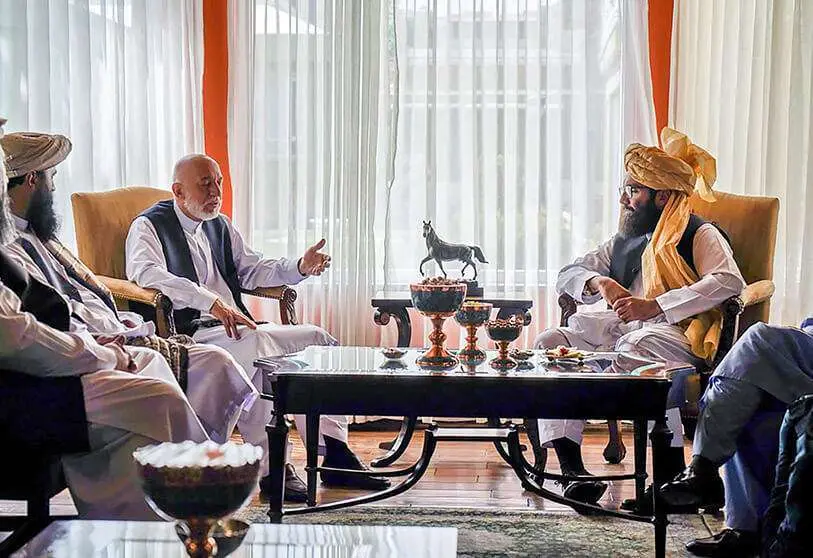
The Taliban are now in power and talks for the formation of a government in Afghanistan have begun. With the arrival of Mullah Baradar Akhund, head of the insurgents' political office in Qatar, in Kandahar accompanied by a high-level delegation after more than two decades without setting foot in the Central Asian country, the Taliban leadership is reorganising for the imminent formation of a new government.
Senior members of the Taliban, including Anas Haqqani, one of the main leaders of the fundamentalist group who heads the Haqqani network branded as terrorist by the United States in 2012, met yesterday with former Afghan President Hamid Karza and the chairman of the High Council for National Reconciliation, Abdullah Abdullah, with whom they held talks for the formation of a new government, according to Tolo News. This meeting took place at Abdullah's house, but details of the issues they discussed are not known.
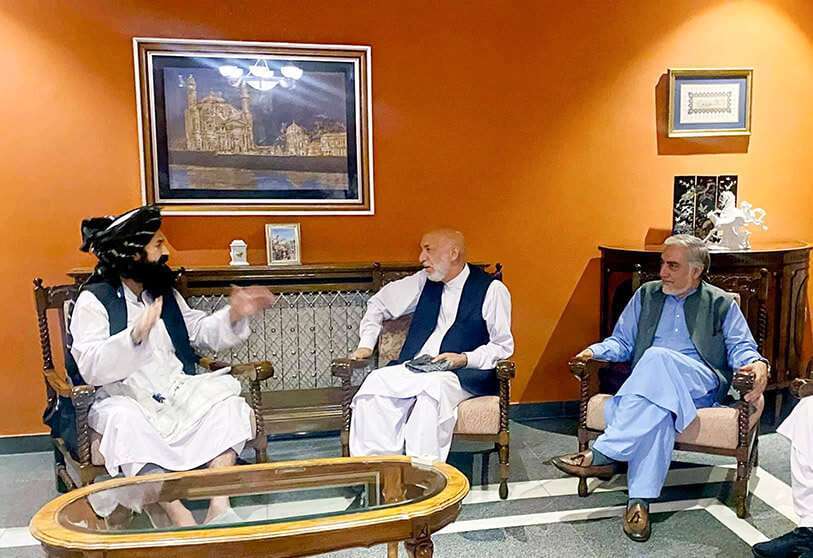
In this context, a senior member of the Taliban told Reuters that "Afghanistan could be ruled by a governing council" and that "the supreme leader of the militant Islamist movement, Haibatullah Akhundzada, would probably remain in charge". Fundamentalist group member Waheedullah Hashimi confirmed that there were many issues that had not yet been finalised regarding the running of the Central Asian country, but stressed that Afghanistan "will not be a democracy". "There will be no democratic system because it has no basis in our country and we will not discuss what kind of political system should be applied in Afghanistan, because the answer is already obvious, it is Sharia law," Hashimi told Reuters.
The senior Taliban member also said the group would be looking for former pilots as well as soldiers from the Afghan armed forces to join its ranks, and said the Taliban planned to create a new national force that would include its own members as well as government soldiers who were willing to join. The reorganisation of the Taliban leadership is an established fact and the group is seeking international legitimacy so as not to be completely isolated as it was during its previous mandate in 1996 when only three countries recognised the Taliban, including Pakistan, the United Arab Emirates and Saudi Arabia.
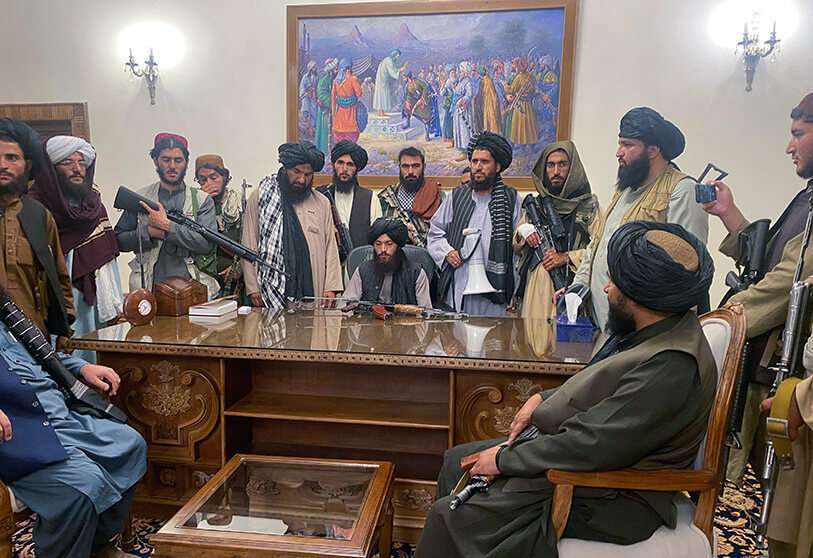
Since taking Kabul on Sunday, the fundamentalists have tried to present a "renewed" image and have assured that they will not retaliate against those who fought against the group. They have also pledged to protect women's rights under Islamic law, guarantee press freedom and offer amnesty to Afghan government officials, chief Taliban spokesman Zabihulla Mujahid said at a press conference on Tuesday.
Since last April, when US President Joe Biden announced the withdrawal of US troops from Afghanistan, the Taliban launched an offensive throughout the country, which over the past two weeks led to the fall of the main provincial capitals and culminated in the capture of Kabul on Sunday, without any resistance from Afghan troops and with the departure of Afghan President Ashraf Ghani from the country.
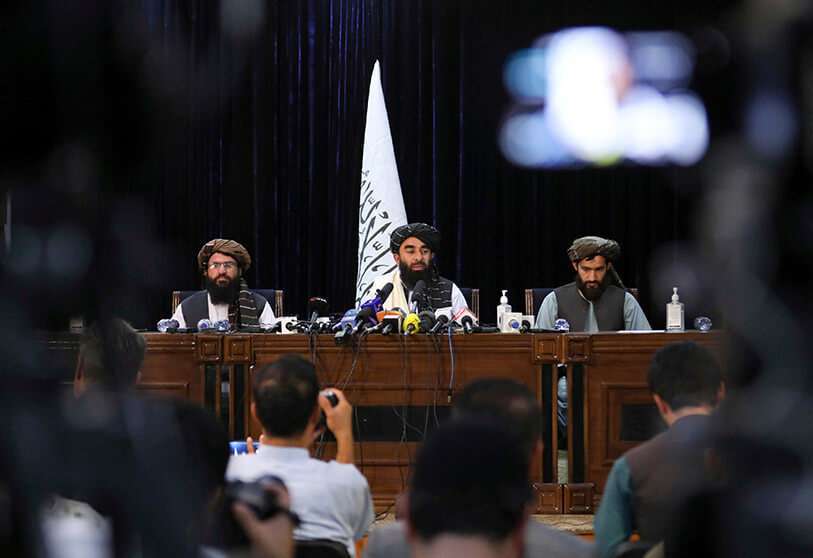
Ghani, who is staying with his family in the United Arab Emirates, has again defended his hasty departure from Afghanistan, saying in his first public appearance since fleeing the central Asian country that he did so to avoid "bloodshed" in the capital, and denied accusations that he had escaped with large sums of money. "If I stayed, I would have witnessed bloodshed in Kabul. My mission was that, for the sake of power, Kabul should not become another Yemen or Syria," Ghani said.
The now former Afghan president said he was in "talks to return" to continue "efforts for justice, true Islamic and national values". In addition, Ghani expressed his support for the government's initiative in the ongoing negotiations with Abdullah Abdullah and former President Hamid Karzai. "I want this process to succeed," said the former Afghan president.
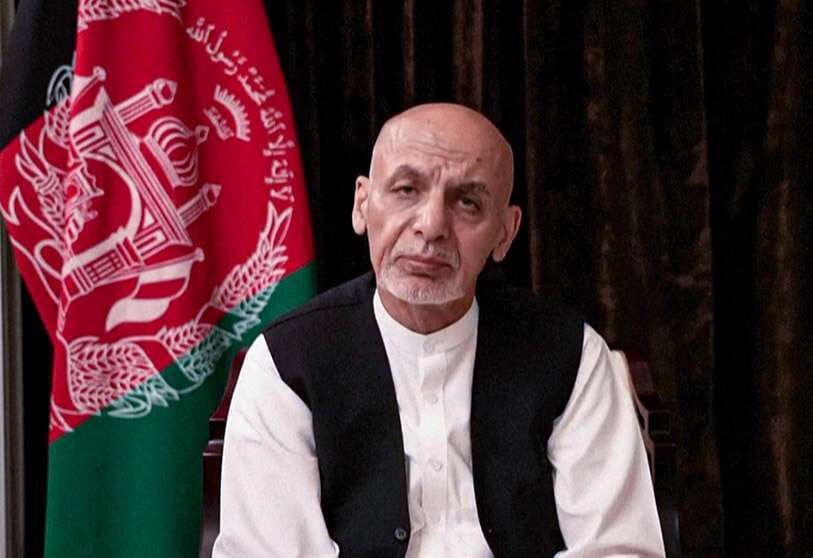
While the Taliban have already begun talks for the formation of a government and the establishment of the Islamic Emirate, Western countries are cautiously watching what is happening in Afghanistan. The International Monetary Fund (IMF), for its part, has blocked the Taliban's access to some $400 million of the multilateral organisation's emergency reserves. A spokesman for the Fund said in a statement that "there is a lack of clarity within the international community regarding the recognition of a government in Afghanistan".
US President Joe Biden has announced that US troops could stay in Afghanistan beyond the 31 August deadline he had set for withdrawal in order to complete the evacuation of all its citizens. "If there are Americans still there, we're going to stay until we can get them all out," Biden said. Most foreign countries have had to bring forward their evacuation plans in the face of the imminent fall of Kabul to the Taliban, which has taken most of the world by surprise.









